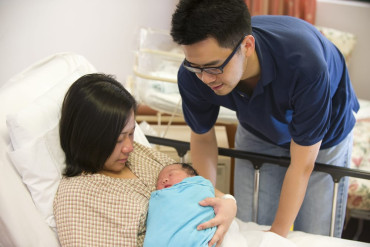Advantages and Risks of Using a Midwife

When it comes to having a baby, an increasing number of women are choosing to work with midwives. These significant, valuable healthcare providers offer excellent care in many cases. In fact, a lot of women taken care of by midwives and/or doulas wind up with better outcomes than women without them. So, while midwives, just like doctors, have to be monitored and carefully surveyed in order to protect patients, they do offer a variety of advantages to expecting moms, such as:
- Holistic Care: Midwives typically focus on the whole patient - not only her physical well-being, but also her psychological and social health. Since it is more than a physical body experiencing pregnancy and childbirth, this sort of care can be comforting and helpful to patients.
- Minimal Interventions: The core philosophy of midwifery is built on the idea that delivering a baby is a natural thing, a normal process that is part of life. For this reason, midwives seek to help the mother listen to her body and aim to minimize medical intervention as much as possible. Women who have babies with a midwife are typically able to receive fewer injections or episiotomies, undergo less anesthesia and have a better chance of delivering vaginally instead of via Caesarean section.
- Personalized Attention: Many women like the level and length of attention they receive from their midwives, who often provide longer, more personalized prenatal sessions. What's more, midwives offer education, counseling and support throughout pregnancy and even after with postpartum support. For some women, midwives feel like supportive, compassionate friends - the kind of friends you know you can count on while you're in the midst of labor.
- Expert Training: While old stereotypes may have considered midwifery antiquated, today's midwives are highly trained. They undergo significant schooling before working with patients. Certified nurse-midwifes (CNMs) are registered nurses with master's degrees or certificates in midwifery, for example. What's more, they deal with pregnancy, labor and delivery every day, so they gain specialty knowledge after years of field experience.
- Location Flexibility: Some midwives offer flexibility regarding where their patients will deliver, be it at a hospital, a birthing center.. This can help patients feel more in control, as well as more at ease, laboring in an environment on their choice. Wherever the birth occurs, there should be a competent provider nearby to handle emergencies.
In many hospitals today, delivering a baby with a midwife is easier than ever - but no matter where a birth happens, you have to make sure there's a competent provider nearby who is ready to manage emergencies. As long as a healthcare facility makes its setting amenable to patients in ways like these, they will continue to improve the way women give birth.
How Does Midwife Malpractice Happen?
Typically, midwives should not provide principal care for women with complicated deliveries. This is because there is a higher potential risk of injuries to the newborns, which increases the potential for medical malpractice.
Midwife malpractice commonly results from the following:
- Using too much or improper force – Some midwives are overly committed to performing natural births and they may continue to try delivering a baby manually, even when it isn’t safe to do so. If they use too much or an inappropriate amount of force when delivering the baby, it can result in traumatic injuries like broken bones or shoulder dystocia.
- Failure to recognize high-risk pregnancies – Midwives are responsible for properly screening patients to ensure they are good candidates for births assisted by a midwife. Women who are considered to have high-risk pregnancies should be referred to a doctor.
- Failure to refer to a physician – A midwife cannot perform Cesarean sections, and in some cases they are not permitted to use delivery instruments like vacuums and forceps. Midwives must refer women to physicians at the first sign of an emergency. Failing to do so promptly may result in injuries to the baby, and that may be grounds for a malpractice case.
- Failure to adhere to infection protocols – Babies are highly susceptible to infection injuries while they are in the womb and immediately after birth. As a result, it’s crucial that healthcare professionals, including midwives, follow sterilization and infection protocols to prevent introducing infection to the mother and baby.
Why Choose Ross Feller Casey For Your Birth Injury Case?
If your baby sustained injuries during pregnancy, delivery, or shortly after birth, and you think it may be a result of midwife malpractice, an experienced Ross Feller Casey attorney can help. Our birth injury lawyers have proven track records of winning cases like yours. Additionally, we have physicians on staff who can review medical records and identify how and when negligence happened.
The legal team at Ross Feller Casey is prepared to fight for your family’s rights and to help you get the compensation you deserve in your birth injury lawsuit. Contact our office today for a free case review. We don’t charge any upfront fees; you only pay when we win your case.
Disclaimer: Ross Feller Casey, LLP provides legal advice only after an attorney-client relationship is formed. Our website is an introduction to the firm and does not create a relationship between our attorneys and clients. An attorney-client relationship is formed only after a written agreement is signed by the client and the firm. Because every case is unique, the description of awards and summary of cases successfully handled are not intended to imply or guarantee that same success in other cases. Ross Feller Casey, LLP represents catastrophically injured persons and their families in injury and wrongful death cases, providing legal representation in Pennsylvania and New Jersey.





